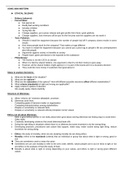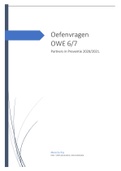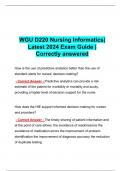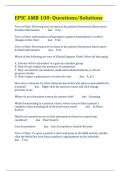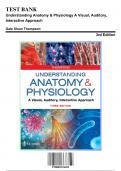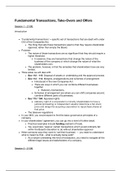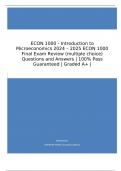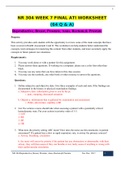Exam (elaborations)
ADMS 3660 MIDTERM York University ADMS 3660
- Course
- Institution
ADMS 3660 MIDTERM ETHICAL DILEMAS - Bribery (soborno) - Forced labor: o Not paid at all o Really bad working conditions o Includes children o Young kids die o Change suppliers, put a press release and gain profits from there- good publicity o Change suppliers, lost revenues will be jus...
[Show more]
